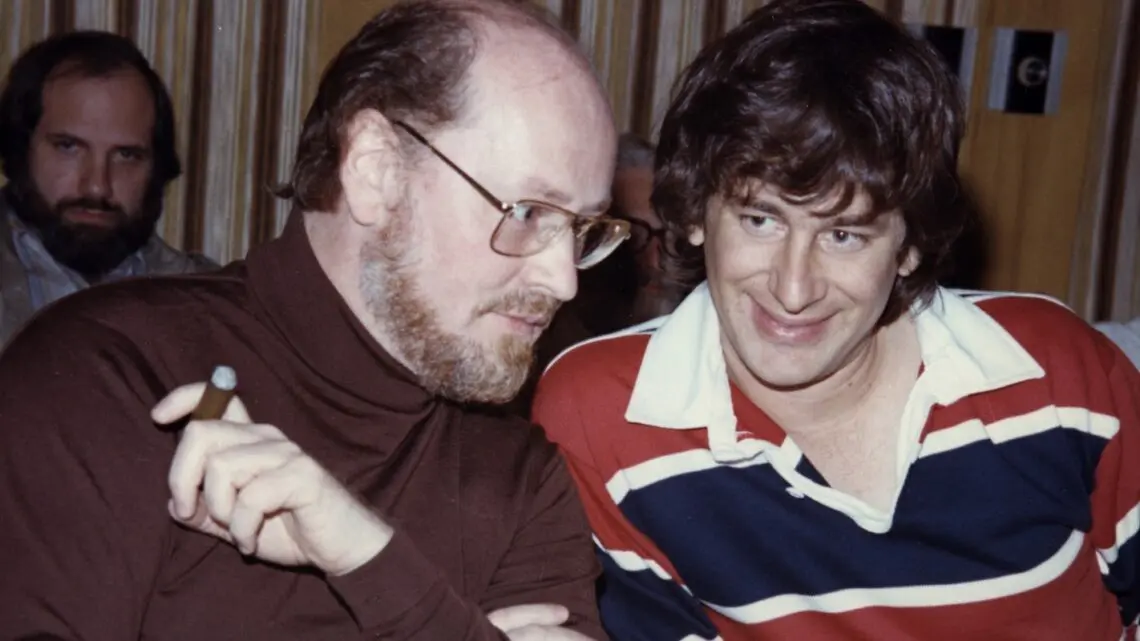John Williams: The maestro behind the music of our lives
From the intense, haunting notes of Jaws to the triumphant blast of Star Wars, John Williams has cemented his place in cinematic history. His scores are not just music; they are experiences etched into our collective memory, transcending the screen and resonating in our everyday lives.
A legacy of unforgettable scores
When you hum the opening notes of a Williams score, such as those from Superman, flying over Manhattan, or E.T., bicycling across the moon, you are instantly transported back to those cinematic moments. This is the power of Williams’ music—evocative, emotional, and timeless.
At 92, the maestro continues to inspire and be celebrated. Not one to seek the spotlight, Williams’ work speaks volumes about his immense talent and dedication. The film “Music by John Williams” turns the camera toward him, offering fans a tribute filled with interviews and accolades from peers, directors, and musicians.
Inside the world of John Williams
Directed by Laurent Bouzereau, known for his close work with Steven Spielberg, the documentary isn’t a deep dive into Williams’ technical process or personal life. Instead, it serves as a heartfelt homage to his enduring legacy. Spielberg’s frequent appearances highlight the deep bond that transformed their careers. A memorable moment in the film shows Williams at the piano, playing the iconic two notes of Jaws. Spielberg’s arrival and their subsequent interaction reveal the profound connection and trust they share.
An unexpected journey
Williams’ collaboration with Spielberg began on The Sugarland Express, where Spielberg was drawn to Williams’ orchestral scores for The Reivers and The Cowboys. The result was an unexpected folk-sounding score that featured harmonica master Toots Thielemans. However, it was on Jaws where Williams truly deviated from expectations. Spielberg had initially experimented with avant-garde snippets from Williams’ score for Images, but Williams reimagined the suspense with simplicity, creating the ominously accelerating notes we recognize today. This partnership established Williams as an indispensable part of Spielberg’s creative team.
The scope and range of Williams’ talent
The documentary offers behind-the-scenes insights that cinephiles will cherish, even if they leave you craving more. Williams almost passed on Star Wars for A Bridge Too Far, but ultimately created one of the most iconic scores in cinematic history. His ability to score diverse films, from the emotionally driven Schindler’s List to the adventurous Jurassic Park, showcases his extraordinary range and ability to craft unforgettable themes.
Williams’ Impact: The documentary attributes Williams with revitalizing the orchestral film score, an art form that was being overshadowed by synthesizers, jazz, and pop soundtracks. His knack for turning simple, catchy themes into multilayered symphonic masterpieces is a testament to his genius.
The man behind the music
While the film doesn’t delve deeply into Williams’ personal life, it nods to significant moments. His early career, influenced by his jazz drummer father and his Air Force service, briefly highlights his beginnings. By the time Jaws hit theaters, Williams already had two Emmys and ten Oscar nominations, including a win for Fiddler on the Roof.
However, “Music by John Williams” is more of a greatest-hits reel—a beautiful compilation celebrating his contributions rather than scrutinizing his journey. We glimpse an early tragedy with the loss of his wife, Barbara Ruick, and a career challenge when he stepped down from conducting the Boston Pops. Such moments remind us of the personal and professional hurdles he overcame.
Enduring legacy
Williams’ work extends beyond film. The documentary samples his non-film pieces, but it’s clear that his magic lies in his cinematic collaborations, particularly with Spielberg and George Lucas. These partnerships ensure that his music will endure for centuries. As the original Star Wars trilogy ages, it becomes evident that Williams’ score remains one of its most timeless elements.
In the grand tapestry of film music, John Williams’ contributions stand as monumental pillars. His scores continue to captivate audiences, evoking a sense of wonder and nostalgia.
Discover more about cinematic legends and their timeless contributions. Share this article on social media, and stay tuned for further updates and explorations into the world of film and music.

 Italian
Italian







